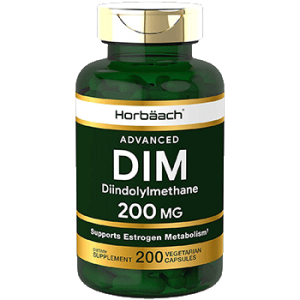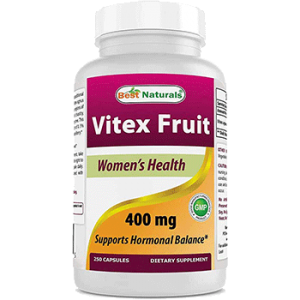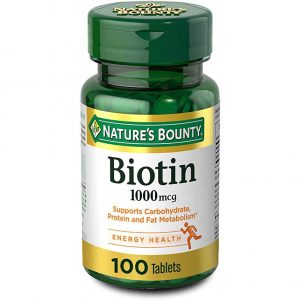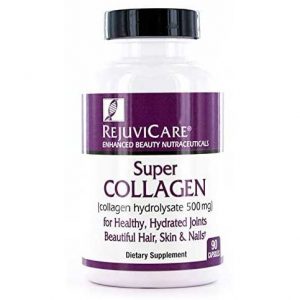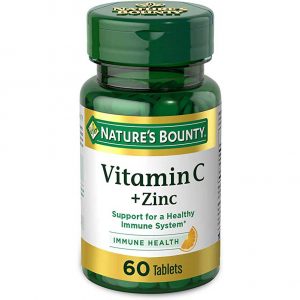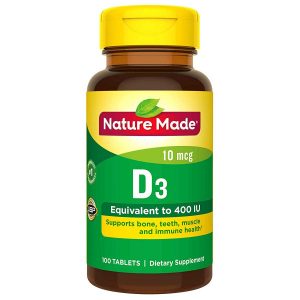
Must Have Supplements And Vitamins For Women’s Health
In this article you’ll learn how to look and feel beautiful and healthy, whether you’re old or young. We’ll focus on the key nutrition supplements that are vital to maintaining vibrant women’s health. A glowing healthy skin, the right weight, strong bones and muscles, flexibility and general well-being is something we all crave.
When coupled with the right hormonal balance with good nutrition and supplements, you can maintain an overall healthy, happy, productive life.
Hormones control nearly every body function – energy levels, blood sugar, sex drive and function, sleep, fertility, memory, happiness and mood, etc. The main key to women’s health is maintaining hormonal balance and a strong immune health.
The following are the best supplements and vitamins for women and women’s health:
DIM (Diindolylmethane) – Supports Estrogen Metabolism
DIM (Diindolylmethane) helps maintain women’s health by raising “good estrogen” levels and lowering “bad estrogen” levels. It helps maintain the level of free, or active, testosterone.
As you start aging, your body can lose its ability to naturally regulate hormone levels on its own. DIM can help you do this.
DIM has a wide variety of women’s health benefits:
- It reduces PMS (Pre-Menstrual Syndrome) symptoms
- Helps reduce your risk of various types of cancer in both men and women
- Provides antioxidant activity to prevent damage from free radicals in the body
- Supports weight loss
- Enhances energy, boosts mood and improves memory
- Supports strong bones and healthy joints
- Improves cardiovascular health
- Increases healthy muscle development
- Improves prostate health in men
- Reduces risk of a heart attack
DIM is derived from cruciferous vegetables like broccoli, kale, and cabbage. Unfortunately, you’d need to eat a kilo of cruciferous vegetables a day to get its maximum benefit.
Luckily, you can get this powerhouse nutrient in a dietary supplement form.
To sum it up: As we start aging, the body’s ability to maintain a healthy oestrogen balance declines. DIM supplementation is a natural approach to achieving a safer and healthier estrogen metabolism – along with all of its health benefits.
Chasteberry Castus Fruit – Supports Hormonal Balance
Chasteberry Castus supports women’s hormonal balance, so it’s used to manage a wide range of women’s reproductive health.
Chasteberry Castus Fruit is a popular herbal supplement used to treat a variety of women’s health problems such as:
- Premenstrual syndrome (PMS)
- Menstrual disorders such as heavy menstrual periods
- Infertility
- Acne
- Menopause
- Nursing difficulties
- Other conditions affecting a woman’s reproductive system
This supplement is made from the Chasteberry Castus fruit (Vitex agnus-castus), also known as Chasteberry or monk’s pepper. Since ancient Greece, it’s frequently harvested as an herbal remedy for a variety of ailments.
In ancient times it was a symbol of chastity, hence its common name, the chaste berry tree.
One of the most popular uses is its ability to reduce symptoms of PMS, such as:
- Constipation
- Irritability
- Depressed mood
- Migraines
- Breast pain and tenderness
Researchers believe that Chasteberry works by decreasing levels of the hormone prolactin. This helps re-balance other hormones, including estrogen and progesterone — thus reducing PMS symptoms.
To sum it up: Chasteberry castus is a safe, herbal remedy for maintaining women’s hormonal balance and managing a variety of ailments. Its most popular use is to relieve PMS, menopause symptoms and infertility issues.
Biotin – Healthy Hair, Skin & Nails
Looking for better hair, skin, and nails? Biotin is hands down one of the best nutrients to help with strong nails, healthy skin, and luscious locks. But there is a whole lot more to women’s health & biotin than just looks.
Biotin is hands down one of the best nutrients to help with
- Better hair
- Strong nails
- Healthy skin and luscious locks
- Helps lower blood sugar and control diabetes
- Supports adrenals and thyroid leading to proper endocrine (hormone) function
- It’s crucial during pregnancy, as it’s important for embryonic growth – helps pregnant moms have healthier babies
What is Biotin?
Biotin is a water-soluble B-complex vitamin usually from nuts, cereals, green leafy vegetables and milk.
It’s water soluble, so it is not stored in the body, so any excess is excreted in urine. This helps lower the risk of toxicity, but it also means you need to be replenishing your levels with food and supplements.
It’s said to restore strength to brittle nails, encourage hair growth, and lead to younger-looking skin.
Research has shown that biotin can help lower blood sugar and encourages better blood sugar balance.
To sum it up: Biotin supports adrenals and thyroid, and proper endocrine (hormonal) function. It helps lower blood sugar and encourages better blood sugar balance. Its most notable benefit is healthy luscious skin, strong nails and hair.
GOT QUESTIONS?

Get A Free Expert Consultation
Navigating supplements without professional help can be expensive and dangerous. We are here to help.
There’s no obligation.
Collagen – Soft, Luscious Skin, Healthy Joints, Bones & Mucles
Collagen supports smooth, healthy & elastic skin. Also supports the strength and growth of hair and nails. It supports healthy joints and muscles as well as tendons, ligaments and bones. Collagen is known to promote joint comfort and lubrication, therefore enhancing mobility and quality of life.
Collagen is pretty much the building block protein in our bodies. A collagen supplement serves several important functions:
- Smooth and soft skin – Collagen is the major structural protein in connective tissue; it helps maintain youthful skin by enhancing the structure and volume.
- Strengthens hair and nails – It Supports the natural collagen structures in your hair follicles and nail beds. This supports the strength and growth of hair and nails.
- Strengthens joints, muscle & bone – The powerful vital amino acids in collagen support healthy skin, hair, joints and muscles as well as tendons, ligaments and bones. Collagen is known to promote joint comfort and lubrication, therefore enhancing mobility and quality of life
- Collagen helps form connective tissue
- May improve blood circulation that helps deter the appearance of fine lines and dry skin
- It has been shown to heal the protective lining of the gastrointestinal tract
What Is Collagen?
Collagen is the most abundant protein in our body making up about 1/3 of our body’s protein. It’s a fibrous, insoluble protein.
Unfortunately, on average, we lose 7% of our collagen production every 10 years after age 21. That means by the time we’re in our fifties, our collagen stores have dramatically dropped by over 20%.
Most of our bodies’ collagen comes in the form of three main types that are found in your skin, bones, cartilage, ligaments, and tendons.
It helps your tissue withstand stretching. So, when collagen decreases with age, you develop problems associated with stretching – wrinkles, saggy skin, joint pain, weakened muscles, and gastrointestinal problems (which stems from the thinning of the lining of your GI tract), etc.
To sum it up: As we age, our collagen production declines, leading to symptoms associated with age – wrinkled skin, weak joints and muscles, etc. Collagen supplementation helps you get a smooth soft skin, stronger hair & nails, as well as strong joints, muscles and bone. It provides an overall better quality of life.
Vitamin C – Strong Immune Health, Bones, Skin & Blood Vessels.
Vitamin C has numerous health benefits such as boosting immunity, cardiovascular health, helps regulate cholesterol & iron, prevents some cancers, diabetes, anaemia and inflammation, protects your memory and thinking, etc.
What Is Vitamin C?
Vitamin C, also known as ascorbic acid is a vital nutrient for health. It’s water-soluble, meaning the body does not store it. This means you need a daily input of vitamin C. As such, you need a vitamin C supplement to keep up with your body’s needs.
What Does Vitamin C Do?
Vitamin C plays numerous vital roles. Here are just SOME of them:
- Boosts immunity: Vitamin C boosts immunity by encouraging the production of white blood cells known as lymphocytes and phagocytes, which help protect the body against infections. It also strengths your skin’s defense system, and helps wounds heal faster.
- Cardiovascular health: Vitamin C may widen the blood vessels, which can help protect against heart disease and hypertension, or high blood pressure.
- Prevents iron deficiency: Vitamin C improves absorption of iron from foods
- Cholesterol levels: These were found to be lower in individuals with adequate levels of vitamin C.
- Production of collagen, L-carnitine, and some neurotransmitters.
- Prevents some Cancers: It helps metabolize proteins and its antioxidant activity may reduce the growth of some types of cancer tissues.
- Maintains vision: Vitamin C may help lower the risk of cataracts as well as of age-related macular degeneration.
- Diabetes: Patients are less likely to experience deterioration of the kidneys, eyes, and nerves if they eat plenty of fruit and vegetables that are rich in vitamin C.
- Prevents anemia: Vitamin C enhances the absorption of iron.
- Protects your memory and thinking as you age: Low vitamin C levels have been linked to an increased risk of memory and thinking disorders like dementia, while a high intake of vitamin C from foods and supplements has been shown to have a protective effect.
- Helps form and maintain bones, skin, and blood vessels.
- It helps in wound healing. Its anti-oxidant properties help repair tissue and reduce damage from inflammation and oxidation.
- Vitamin C may also help prevent acute respiratory infections, especially in people with malnutrition and those who are physically stressed.
- Vitamin-C-rich foods and supplements have been linked to reduced blood uric acid levels and lower risk of gout.
To sum it up: Vitamin C helps maintain a strong immune system, protecting us from a wide variety of diseases. It helps prevent damage from inflammation. Since it’s water soluble, it’s not stored in the body, so you need to take it every day.
Zinc – Aids growth, DNA Synthesis, Immune Function & More
Zinc is an important for maintaining good immune health:
- Boosts the immune system by stimulating particular immune cells and reduce oxidative stress.
- Accelerates wound healing: Zinc plays a critical role in collagen synthesis, immune function and inflammatory response, making it necessary for proper healing.
- May reduce risk of some age-related diseases: such as pneumonia, infection and age-related macular degeneration (AMD).
- May treat acne: Acne is caused by obstruction of oil-producing glands, bacteria and inflammation. Zinc treats acne by reducing inflammation, inhibiting the growth of P. acnes bacteria and suppressing oily gland activity.
- Reduces inflammation: Zinc decreases oxidative stress and reduces levels of certain inflammatory proteins in your body. Oxidative stress leads to chronic inflammation, which causes a wide array of chronic illnesses, such as heart disease, cancer and mental decline.
To sum it up: Zinc maintains a strong immune system protecting us from various diseases. It’s also used to treat acne.
Vitamin D – Strong Bones, Prevents Many Diseases
Your body must have vitamin D to absorb calcium and promote bone growth. Vitamin D deficiency has now been linked to breast cancer, colon cancer, prostate cancer, heart disease, depression, weight gain, and other maladies.
Vitamin D is nicknamed the sunshine vitamin because your body produces it after sun exposure. It’s also available from certain foods like salmon, tuna, mushrooms, milk, eggs, oranges, etc.
Because lots of people work indoors (hence low sun exposure), supplementation of vitamin D is necessary. As you age, the ability of your skin to make vitamin D decreases.
- Prevents you from an array of diseases: such as heart disease, diabetes, and cancer to mood disorders, dementia, etc.
- Helps calcium absorption from the intestines: This calcium is necessary to maintain the hardened bones that keeps you strong and healthy.
To sum it up: As we age, the skin’s ability to make vitamin D decreases. Coupled with lower sun exposure in most people, vitamin D supplementation is necessary. It helps prevent us from an array of diseases, and helps in absorption of calcium leading to strong bones.

